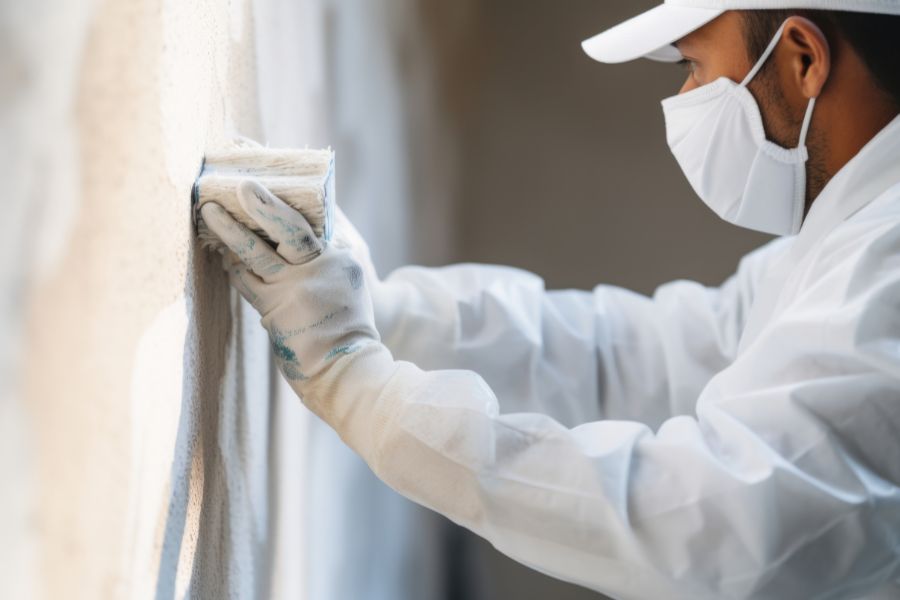Understanding Coating Inspector Responsibilities: Ensuring Quality and Durability
In various industries, the role of a coating inspector is crucial for ensuring that surfaces receive proper protective coatings. Coating inspector responsibilities include verifying that coatings are applied correctly, meet quality standards, and comply with industry regulations. This article delves into the key coating inspector responsibilities, essential skills, tools used, training requirements, challenges faced, and career opportunities for coating inspectors. Understanding these aspects can provide a comprehensive view of the vital role these professionals play in maintaining the integrity and longevity of coated surfaces.
Core Responsibilities of a Coating Inspector
Inspection Duties
One of the primary coating inspector responsibilities is to conduct thorough inspections throughout the coating process. This begins with pre-inspection preparation, where inspectors review project specifications and standards to understand the requirements. They assess the surface preparation, ensuring it is ready for coating application. During the coating application, inspectors monitor the process to ensure that it adheres to specified procedures. Post-application, they perform detailed checks to confirm that the coating meets the necessary quality standards, such as thickness, adhesion, and uniformity.
Compliance and Documentation
Coating inspector responsibilities also include ensuring compliance with industry standards and regulations. Inspectors verify that the coatings applied are in line with these standards and document their findings meticulously. Detailed records are maintained to track inspection results and any deviations from the standards. When non-compliance issues are identified, coating inspectors are responsible for reporting these issues and recommending corrective actions. This documentation is essential for quality assurance and for addressing any potential issues that may arise in the future.
Essential Skills and Qualifications
Technical Knowledge
To perform their coating inspector responsibilities effectively, inspectors must possess a deep understanding of different types of coatings and their specific applications. They need to be familiar with the various inspection tools and equipment used in the field, such as coating thickness gauges and adhesion testers. Additionally, a thorough knowledge of industry standards and best practices is crucial for ensuring that coatings are applied correctly and meet the required specifications.
Analytical and Communication Skills
Coating inspector responsibilities require excellent analytical skills to identify and address any issues that may arise during the coating process. Attention to detail is vital for spotting potential problems and ensuring consistent quality. Effective communication skills are also essential, as inspectors need to collaborate with project teams and stakeholders to relay their findings and recommendations. The ability to interpret technical documents and specifications is another critical skill that enables coating inspectors to perform their duties accurately.
Tools and Equipment Used by Coating Inspectors
Inspection Tools
Coating inspectors rely on various specialized tools to carry out their coating inspector responsibilities. Coating thickness gauges are used to measure the thickness of the applied coating, ensuring it meets the specified requirements. Surface profile gauges assess the texture of the prepared surface, which is crucial for coating adhesion. Adhesion testers determine the bond strength between the coating and the substrate. These tools are indispensable for ensuring that the coating process meets quality standards.
Safety Equipment
Given the potentially hazardous environments in which coating inspectors often work, safety equipment is paramount. Personal protective equipment (PPE) such as gloves, safety glasses, and protective clothing are essential for safeguarding against exposure to harmful chemicals and physical hazards. Respirators and ventilation systems are also necessary when working in confined spaces or with volatile substances. Ensuring safety during inspections is a critical aspect of coating inspector responsibilities.
Training and Certification
Required Training
Aspiring coating inspectors must undergo rigorous training to acquire the necessary skills and knowledge to fulfill their coating inspector responsibilities. This includes both formal education through coating inspection courses and hands-on experience through on-the-job training. Comprehensive training programs cover various aspects of coating technology, inspection techniques, and industry standards. This foundational training is crucial for preparing individuals to perform their duties effectively.
Certification Programs
Certification is a key requirement for coating inspectors, as it validates their expertise and competence in carrying out their coating inspector responsibilities. Several certification programs are available, with the NACE (National Association of Corrosion Engineers) Now Known as AMPP and CORCON – Institute of Corrosion being the most recognized organizations. These certifications demonstrate that an inspector has met the industry standards for knowledge and proficiency, enhancing their credibility and career prospects.
Common Challenges Faced by Coating Inspectors
Environmental Factors
Coating inspector responsibilities often involve encountering environmental challenges that can impact the coating process. Weather conditions, such as temperature and humidity, play a significant role in coating application and curing. Inspectors must account for these factors to ensure optimal results. Additionally, working in hazardous environments, such as industrial plants or offshore platforms, presents safety risks that inspectors must manage diligently.
Technical Challenges
The complexity of modern coating systems can pose technical challenges for coating inspectors. They must stay updated on the latest advancements in coating technology and application methods to effectively inspect and assess these systems. Ensuring consistent quality across large projects, where multiple variables can affect the outcome, requires a high level of expertise and attention to detail.
Career Opportunities and Advancement
Career Path
The career path for coating inspectors offers various opportunities for advancement in fulfilling their coating inspector responsibilities. Entry-level positions typically involve assisting experienced inspectors and gaining hands-on experience. With time and further training, inspectors can advance to senior roles, such as lead inspectors or quality assurance managers. Specialization areas within coating inspection, such as marine or industrial coatings, provide additional career avenues for those looking to focus on specific industries.
Industry Demand
The demand for coating inspectors is strong across several sectors, including oil and gas, marine, infrastructure, and manufacturing. As industries continue to prioritize quality and safety, the need for skilled coating inspectors remains high. Future job prospects look promising, with ongoing advancements in coating technology and increased regulatory requirements driving the demand for qualified inspectors.
FAQs: Frequently Asked Questions
What are the main responsibilities of a coating inspector?
Coating inspectors are responsible for conducting thorough inspections throughout the coating process. This includes pre-inspection preparation, monitoring coating application, post-application checks, and ensuring compliance with industry standards. They also document their findings and recommend corrective actions if necessary.
What skills are essential for a coating inspector?
Essential skills for a coating inspector include technical knowledge of coatings and inspection tools, analytical abilities to identify and solve problems, attention to detail, effective communication with project teams and stakeholders, and the ability to interpret technical documents and specifications.
What tools do coating inspectors use?
Coating inspectors use a variety of tools, including coating thickness gauges to measure the thickness of coatings, surface profile gauges to assess surface texture, and adhesion testers to determine the bond strength between the coating and the substrate. They also use personal protective equipment (PPE) and safety gear to ensure their safety during inspections.
What kind of training is required to become a coating inspector?
Aspiring coating inspectors must undergo formal education through coating inspection courses and gain hands-on experience through on-the-job training. Comprehensive training programs cover coating technology, inspection techniques, and industry standards. Certification from recognized organizations like NACE (Now Known as AMPP) and SSPC is also essential.
Closing Insights
At CORCON – Institute of Corrosion, we understand the vital role that coating inspectors play in ensuring the quality and safety of protective coatings across various industries. The responsibilities of a coating inspector encompass thorough inspections, compliance verification, and detailed documentation. Essential skills for these professionals include technical knowledge, analytical abilities, and effective communication. Equipped with specialized tools and safety equipment, coating inspectors must undergo rigorous training and obtain certifications to validate their expertise.
Our comprehensive Coating Inspector Level 1 and Level 2 programs are designed to equip individuals with the necessary skills and knowledge to excel in this field. Despite facing environmental and technical challenges, the career offers numerous opportunities for advancement and specialization. For those interested in maintaining the integrity and longevity of coated surfaces, a career as a coating inspector, backed by CORCON’s training and certification, is both rewarding and essential.
Image Reference: Freepik
Disclaimer: All trademarks, logos, and brand names are the property of their respective owners. All company, product, and service names used in this website are for identification purposes only. Use of these names, trademarks, and brands does not imply endorsement.

